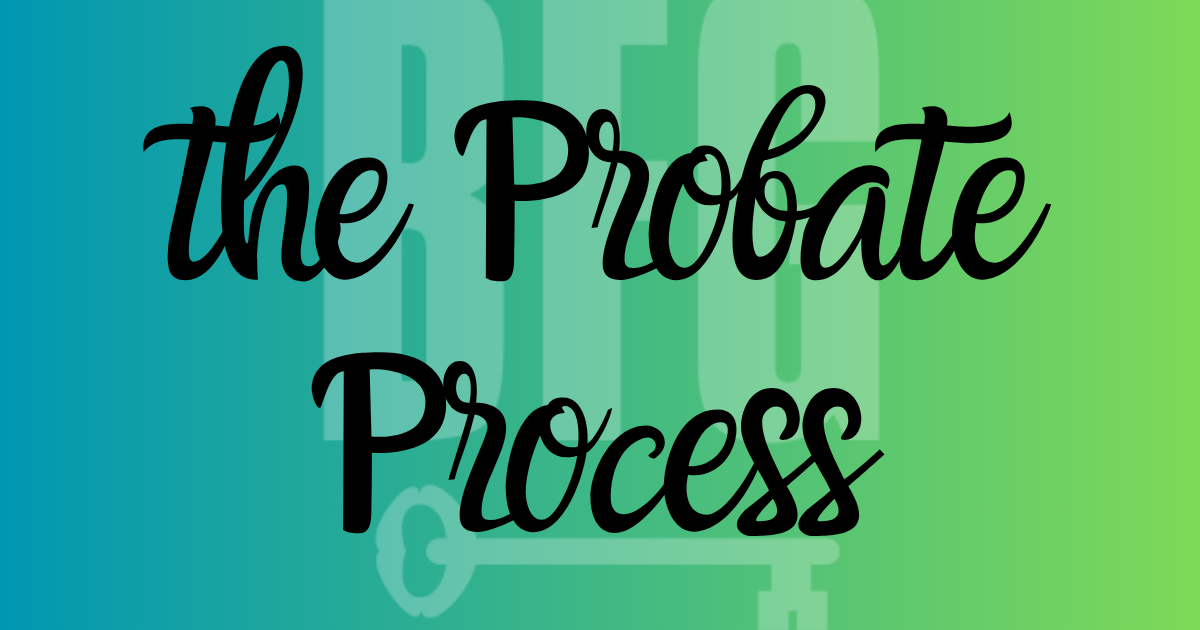The probate process in Colorado is a legal procedure that takes place after someone passes away, ensuring that their assets are distributed according to their will or state law if there is no will. While probate can seem complex and overwhelming, understanding the steps involved can help ease the process for those left behind. This guide will walk you through the essentials of the probate process in Colorado, offering clarity on what to expect and how to navigate it effectively.
1. What is Probate?
Probate is the legal process through which a deceased person’s estate is administered, ensuring that all debts are paid and the remaining assets are distributed to the rightful heirs or beneficiaries. The probate process is typically overseen by a court and involves several key steps, including validating the will, inventorying the estate, paying debts and taxes, and distributing the remaining assets.
2. When is Probate Required in Colorado?
In Colorado, probate is generally required when the deceased person owns assets solely in their name or has debts that need to be settled. However, not all assets go through probate. Some may pass directly to beneficiaries through non-probate methods, such as:
- Jointly Owned Property: Assets owned jointly with rights of survivorship automatically pass to the surviving owner without going through probate.
- Beneficiary Designations: Assets like life insurance policies, retirement accounts, and payable-on-death (POD) accounts that have designated beneficiaries bypass probate.
- Trusts: Assets held in a living trust do not go through probate and are distributed according to the terms of the trust.
3. The Types of Probate in Colorado
Colorado offers different types of probate procedures depending on the complexity and value of the estate:
- Small Estate Affidavit: If the estate is valued at $80,000 or less (as of 2024) and does not include real property, heirs can use a small estate affidavit to collect assets without going through the full probate process.
- Informal Probate: This is the most common form of probate in Colorado. It’s used when there is a valid will and no disputes among heirs. The process is simplified and does not require formal court hearings.
- Formal Probate: Formal probate is required when there are disputes among heirs, questions about the validity of the will, or if the estate is complex. This process is more structured and involves court supervision.
4. Steps in the Colorado Probate Process
The probate process in Colorado typically involves the following steps:
- 1. Filing a Petition: The process begins with filing a petition for probate with the local probate court in the county where the deceased resided. If there is a will, the executor named in the will typically files the petition. If there is no will, the court appoints an administrator.
- 2. Validating the Will: The court will review the will to ensure it is valid. If the will is found to be valid, it will be admitted to probate.
- 3. Appointing a Personal Representative: The court appoints a personal representative (also known as an executor or administrator) to manage the estate. The personal representative is responsible for carrying out the probate process, including managing the estate’s assets, paying debts, and distributing the remaining assets to beneficiaries.
- 4. Inventorying the Estate: The personal representative must inventory all the deceased’s assets, including real estate, bank accounts, investments, personal property, and any other valuable items.
- 5. Paying Debts and Taxes: The personal representative is responsible for paying any outstanding debts, taxes, and expenses associated with the estate. This includes notifying creditors and settling any valid claims against the estate.
- 6. Distributing Assets: Once all debts and taxes have been paid, the remaining assets are distributed to the beneficiaries according to the terms of the will or, if there is no will, according to Colorado’s intestacy laws.
- 7. Closing the Estate: After all assets have been distributed, the personal representative files a final accounting with the court and requests that the estate be closed.
5. How Long Does the Probate Process Take?
The length of the probate process in Colorado can vary depending on the complexity of the estate and whether any disputes arise. On average, informal probate can take anywhere from six months to a year. Formal probate, especially if contested, can take longer.
6. Do You Need an Attorney for Probate?
While it is not legally required to hire an attorney for probate in Colorado, doing so can be highly beneficial. A probate attorney can help guide the personal representative through the process, ensure all legal requirements are met, and help resolve any disputes that may arise. For complex or contested estates, legal assistance is often essential.
Conclusion
The probate process in Colorado is a necessary step to ensure that a deceased person’s assets are distributed fairly and in accordance with their wishes. While the process can be intricate, understanding the steps involved can help you navigate it with greater confidence. If you’re dealing with the probate process and need assistance, don’t hesitate to reach out to the Big Frontier Group. We’re here to provide support and guidance every step of the way.


